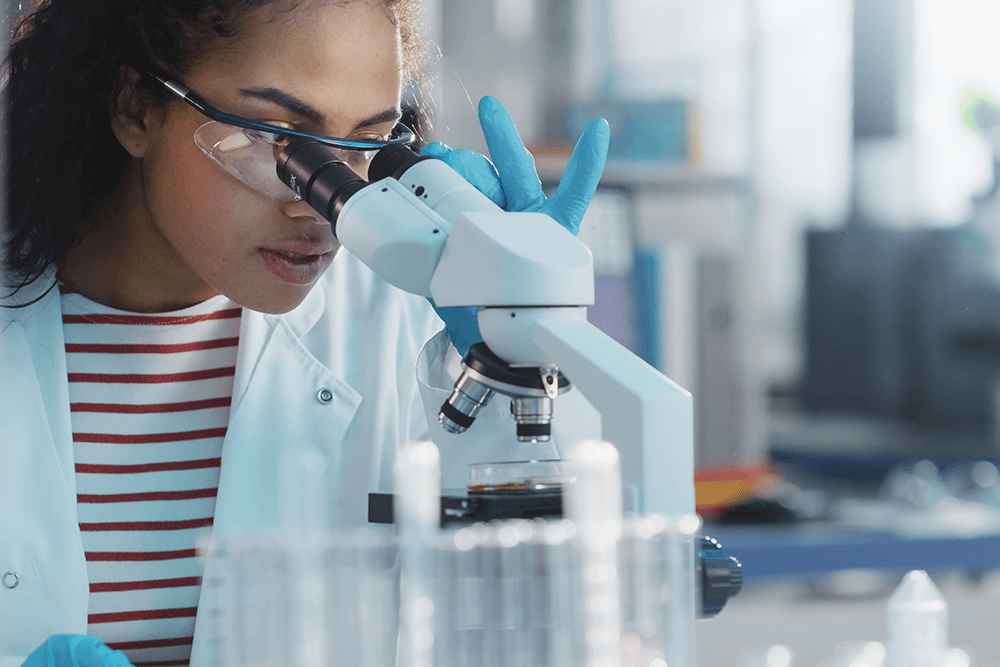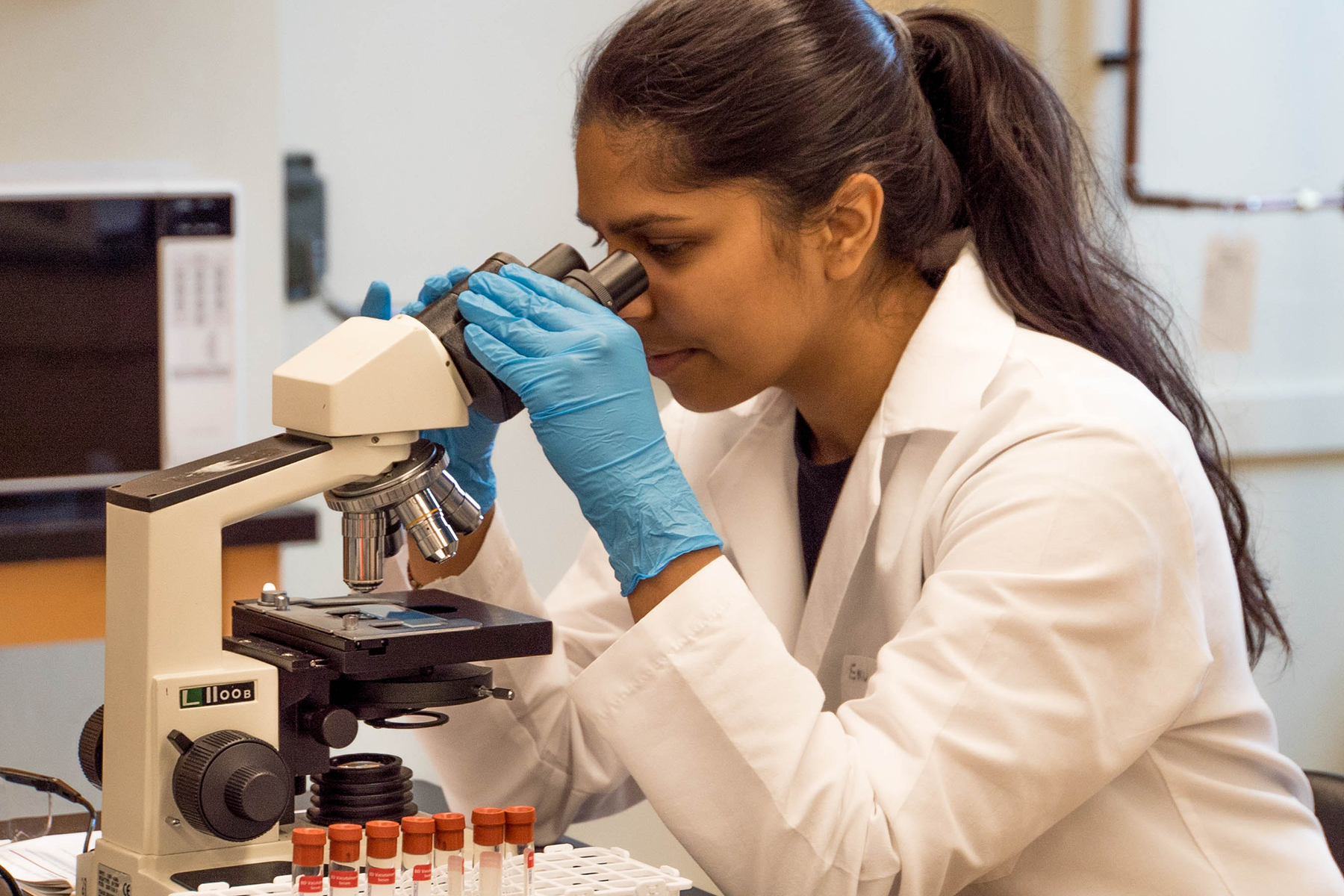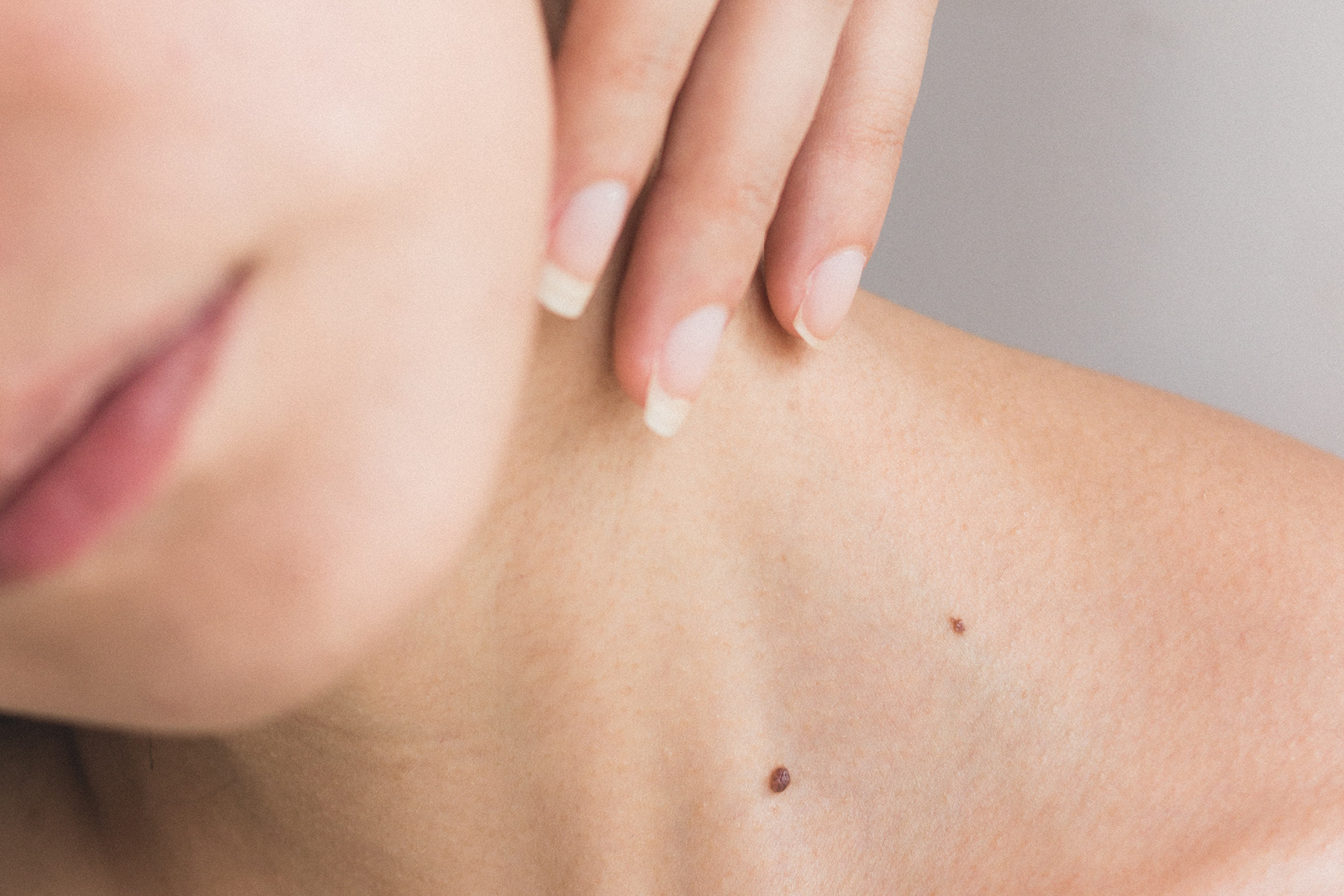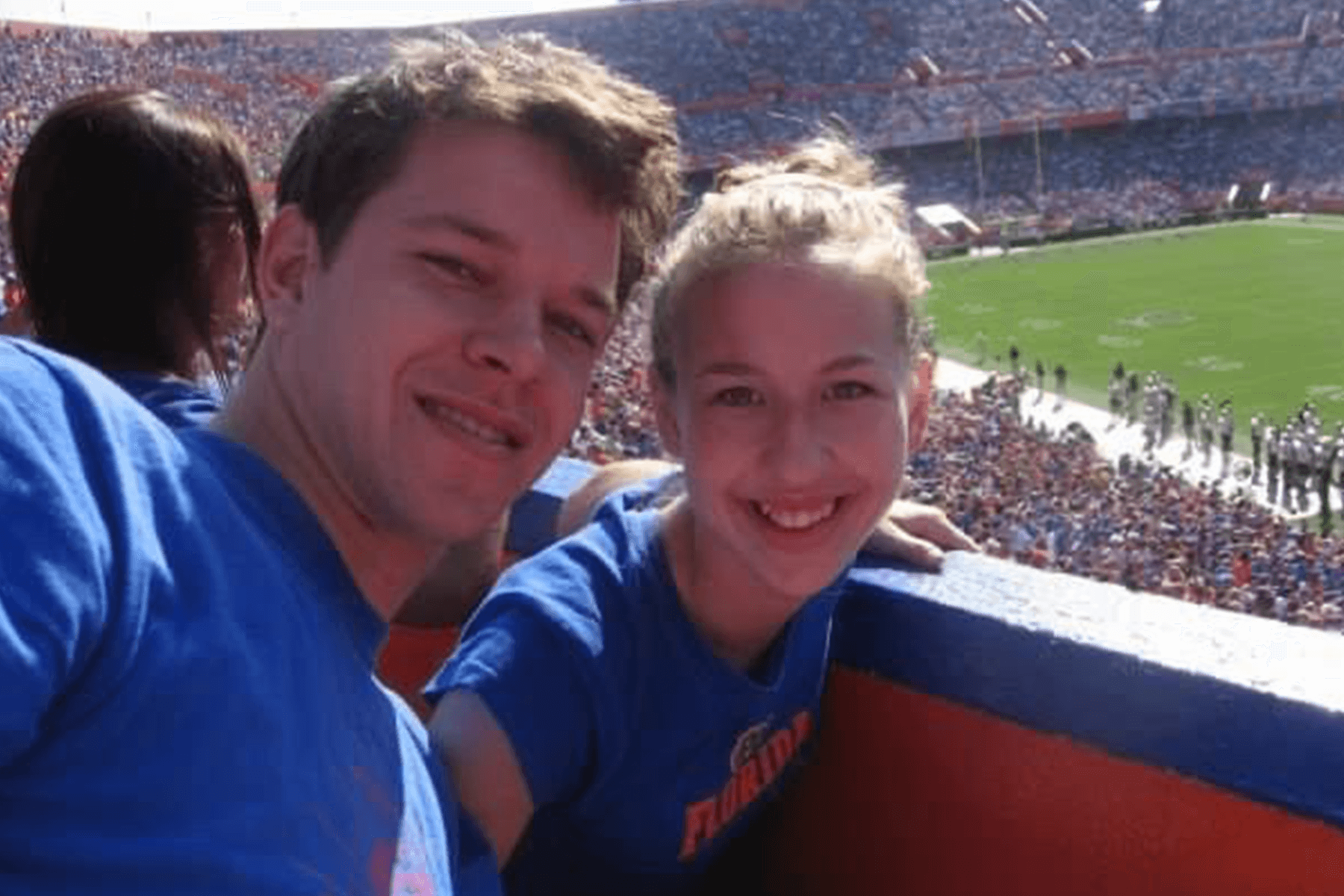The+Source
Tell us a little bit about yourself. When did you first become interested in science?
I’m currently a medical student research fellow at Memorial Sloan Kettering Cancer Center, and I will be starting my 4th year of medical school at Albert Einstein College of Medicine after I finish my research fellowship this summer.
My family immigrated from the Philippines to the United States when I was a child, and we moved between states as we settled down. For a while, everything felt new and different. It was easy to feel overwhelmed by the unfamiliar culture, landscape, language, and technology, but instead, I embraced constant change and was fascinated by the world around me. I always wanted to learn more, and science provided a way for me to explore and connect with my new environment in a meaningful way. Eventually, science gave me a lasting sense of belonging and purpose.
I was first exposed to research in my freshman year of college when I committed to work in a marine biology lab for a semester. We studied the effects of ocean conditions resulting from human pollution on the biomechanics of different marine animals. As I dove deep into how and why we could perform this research, my curiosity grew, and my semester with the lab quickly turned into 4 years.
When I entered medical school, I was set on continuing research in a new capacity. I was interested in understanding and improving patient outcomes and experiences, but directly working with patients, especially patients from underserved populations, instilled a newfound, deeper excitement for research. Listening to patients drives a lot of my research questions, and individual patients and the goal of improving their care remain the motivation that pushes me when things become difficult.
You are currently working as a fellow for the Memorial Sloan Kettering Cancer Center – can you tell us a little bit about what you are working on (in terms us non-scientists can understand)?
As a member of the Dermatology Imaging Informatics Group at Memorial Sloan Kettering Cancer Center, I have been part of multiple projects focused on imaging technology under the guidance of my mentors Dr. Veronica Rotemberg and Dr. Allan Halpern.
A large focus of my work is the clinical application of novel imaging technology, namely 3D-total body photography, which captures the entire body surface area in a single high-resolution capture. Our projects include optimizing 3D-total body photography and technology that can detect new and changing lesions for melanoma screening in high-risk patients. We also use 3D-total body photography to better understand and quantify treatment response of skin conditions, including adverse events of immunotherapy which negatively impact patients’ quality of life and too often lead to interruption of cancer treatment.
With the growing use of photography for clinical, research, and educational purposes in dermatology, our team is interested in understanding patient and population-wide attitudes and preferences regarding the experience, consent, photography uses, security, and identifiability of clinical photography. Our overarching goal is to develop imaging standards that are informed by patient preferences and contribute to ongoing work ensuring our clinical evidence base and image-based artificial intelligence models are comprehensive and representative of skin types and disease presentations. Similarly, we also aim to understand the impact of skin tone on the performance of artificial intelligence for melanoma detection and reducing bias to promote equity in care.
What excites you most about this research?
I am very grateful for the opportunity to collaborate with an incredible interdisciplinary team of physicians, data analysts, and engineers at MSK that pioneer the latest technologies for skin imaging. At first, working with such advanced technology was daunting but after only a short time at MSK, I truly believe in the potential of this research to change dermatology practice and directly improve patients’ lives. I look forward to the day these technologies are widely integrated into clinical practice to help mitigate disparities in access to dermatologic care that exist around the world.
What are the biggest challenges?
All research is challenging and is made up of a lot of moving parts. This year, I have managed multiple projects at different stages from study design and data collection to data analysis and publication, which requires the utmost organization and attention to detail.
How do you see this research changing the way we detect skin cancer in the future?
3D-total body photography, among other imaging technologies, is already in use as standard practice at MSK. The work here is paving the way for the availability of accurate imaging technology for detection of skin cancer in all primary care and dermatology settings and possibly even in patients’ own homes in the future. This research is key to early detection of skin cancer, which could lead to better survival rates, and improved accuracy, reducing the need for unnecessary biopsies and improving patient outcomes. For patients, imaging can provide reassurance and better understanding of their skin and need for treatment.
Do you think this technology will someday go beyond skin cancer detection and into treatment delivery?
Absolutely! I have led recruitment of patients for a prospective project that collects patient-submitted mobile device photos and patient-reported outcomes after ablative therapies of pre-cancerous lesions. The goal of this prospective study is to determine patient and lesion characteristics and treatment parameters associated with optimal treatment response. We envision this project contributing to an image dataset that will be used to train and test artificial intelligence models that can predict treatment outcomes and reduce variation in treatment success, leading to more personalized care plans.
With early skin cancer detection being key for treatment, what impact do you think this technology will have in reducing the mortality rate for skin cancers and melanoma specifically?
The survival rate for melanoma is very high when it is caught early. As such, imaging technologies for skin imaging can help detect new and changing lesions that may be cancerous and differentiate between benign or malignant lesions. This can help dermatologists and non-dermatologists find skin cancers at an early stage when they are more treatable and have a better prognosis.
What should we be doing to reduce the risk of skin cancer in our day to day lives?
UV protection is key: wear protective clothing, use sunscreen daily and reapply, seek shade during peak UV hours, and avoid tanning beds! Don’t hesitate to seek medical attention if you notice any new or changing spots on your skin. Keep in mind that some medications you may be taking may increase sensitivity to UV and skin cancer risk.
Science is known for being a male-dominated field – do you have any advice for other girls who are looking to forge a career path in the industry?
Don’t let fear hold you back from pursuing a career path in science. Believe in yourself and explore your interests. Surround yourself with people who support and encourage you, and seek out mentors you look up to who can help you navigate your professional and personal growth. Science isn’t always easy, and remember failures are only learning opportunities to continuously improve and grow.
Is there anything else you would like to add?
I want to thank Dennis Gross Skincare for their tremendous commitment to supporting skin cancer research. I am also incredibly grateful to my mentors Dr. Rotemberg and Dr. Halpern for their guidance and the opportunity to grow as a researcher this year and to the MSK dermatology service, my fellow medical student research fellows, and my family and friends for their constant support.
Discover Dr. Dennis Gross Skincare for All Your Skincare Needs
For more skincare tips from the experts at Dr. Dennis Gross, check out our blog’s newest content today. Shop the collection of Dr. Dennis Gross bestselling skincare by dermatologists.




